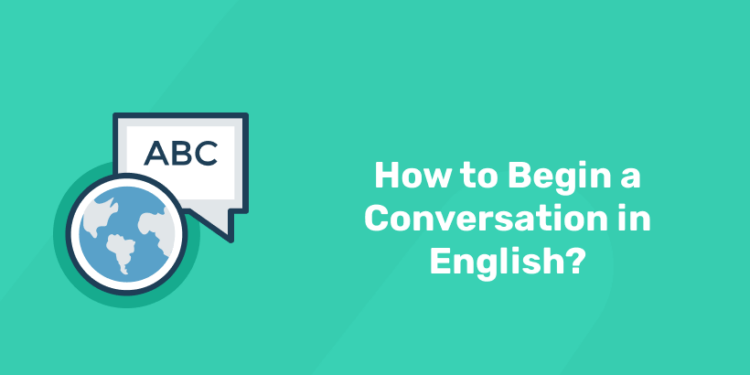Table of Contents
Key Takeaways:
- Starting a conversation is about connection, not perfect English.
- Simple greetings and open-ended questions work in almost any situation.
- Tailor your approach depending on the person and context.
- Overcoming fear takes practice, positive mindset, and small steps.
- Professional courses like Entri’s Spoken English Course can accelerate your speaking confidence.
Introduction
Starting a conversation in English can be a nerve-wracking experience for many learners. Whether you want to socialize, make new friends, network professionally, or simply practice your English skills, knowing how to start talking to someone new is essential. The good news is that conversation skills can be learned with practice, and even simple phrases can open doors to meaningful interactions. This blog will guide you through easy, friendly ways to begin conversations in English, with tips for different settings and advice on overcoming fear.
Many learners hesitate to speak because they worry about grammar mistakes, vocabulary gaps, or sounding awkward. The truth is, starting small and practicing regularly can boost your confidence quickly. Even native speakers sometimes struggle to find the right words! Focus on connection rather than perfection, and use the techniques here to create welcoming, engaging conversations every time.
 Why Is Starting a Conversation Important?
Why Is Starting a Conversation Important?
1: Which of the sentences below is grammatically correct?
Starting a conversation well sets the tone for friendly and productive communication. It helps break the ice, builds rapport, and can lead to lasting friendships or career opportunities. Learning conversation starters is not just about speaking English; it’s about developing social skills that work in real life.
Many people miss chances to connect because they don’t know how to open a conversation naturally. By mastering a few simple phrases and questions, you’ll be prepared to confidently talk to new people, whether in casual or formal situations. Overcoming the initial hesitation is key to growing your fluency and practical skills.
Spoken English Course for Guaranteed Confidence and Career Growth
Spoken English Course by Entri App: Enhance your communication skills, gain certification, and boost your career with confidence.
Join Now!Simple Conversation Starters You Can Use Anywhere
The easiest way to start is with greetings or comments that feel natural:
-
Hi! How are you today?
-
What have you been up to recently?
-
Have you tried the food here? It’s really good!
-
That’s a nice backpack. Where did you get it?
-
What do you do for work or study?
-
How’s your day going?
These open-ended starters invite the other person to share information, making it easier to keep the conversation going.
How to Begin Talking with Different People
With Friends or People You Already Know
When you talk with friends, keep it casual:
-
What’s up?
-
How’s everything going?
-
Have you seen any good movies lately?
You can also ask about their family, hobbies, or plans.
With Colleagues or Acquaintances
Use polite and professional language in work settings:
-
How was your weekend?
-
Are you working on any interesting projects?
-
Did you hear about the new company updates?
Talking about work topics, current events, or shared interests works well.
With People You’ve Just Met
Introduce yourself and ask friendly questions:
-
Hi, I’m [Name]. What’s your name?
-
Where are you from?
-
How do you know the host? (At parties or gatherings)
-
What do you enjoy doing in your free time?
These help start a conversation without sounding too formal or awkward.
Starting Conversations in Social Settings
At a Party or Event
Comment on the surroundings or mutual connections:
-
How do you know the host?
-
Have you tried the drinks?
-
What brought you here today?
Compliments and light humor can also break the ice.
In Public Places Like Cafes or Parks
Situational comments are great here:
-
Lovely weather today, isn’t it?
-
That’s a cute dog! What’s his name?
-
Have you been to this café before?
This helps start a natural, relaxed chat.
Spoken English Course for Guaranteed Confidence and Career Growth
Spoken English Course by Entri App: Enhance your communication skills, gain certification, and boost your career with confidence.
Join Now!Tips for Starting and Maintaining Confident English Conversations
Starting a conversation is just the first step—being able to keep it going and building confidence are equally important. Here are some expanded, practical tips to help you not only start but maintain engaging conversations in English smoothly and confidently:
-
Listen Carefully and Be Present:
Pay close attention to what the other person says. Active listening builds understanding and shows genuine interest, making the other person feel valued. Repeat or paraphrase important points to confirm you understood correctly.
-
Take Your Time:
Don’t rush to respond. It’s perfectly fine to pause and think about what you want to say. Speaking slowly and clearly helps reduce mistakes and lets your listener follow you easily. You can even say, “Let me think for a moment,” to buy time without feeling pressured.
-
Use Body Language and Facial Expressions:
Non-verbal cues like smiling, nodding, and maintaining eye contact encourage positive interaction. Friendly body language makes your conversation partner more comfortable and helps convey your message clearly, even if words escape you.
-
Ask Open-Ended Questions:
These are questions that invite more than a yes/no answer. Examples include “What do you enjoy doing?” or “How did you get interested in that?” Such questions encourage others to share more, giving you material to respond to and keep the dialogue flowing.
-
Share Your Experiences:
Don’t hesitate to talk about your own thoughts and experiences. Personal stories create connection and make conversations more engaging. Even simple comments like “I like that movie too!” or “I’ve been learning English for a year” encourage friendly exchange.
-
Practice Positive Self-Talk:
Remind yourself that making mistakes is normal and part of improvement. Replace negative thoughts like “I’m going to mess up” with positive affirmations like “I’m improving every day.” Confidence often grows naturally when you give yourself permission to learn.
-
Join Communities and Practice Regularly:
Conversation skills develop best with consistent practice. Join English-speaking groups—online or offline—where others are also learning. Practice with friends, mentors, or language partners who create a supportive environment.
Extra: Questions to Keep Conversations Going
Once you’ve started talking, here are some questions to keep the chat flowing naturally:
-
What are your hobbies?
-
Have you traveled anywhere interesting lately?
-
What kind of music or movies do you like?
-
What’s your favorite restaurant or food?
-
How did you get interested in your job or hobby?
-
What do you usually do on weekends?
-
Are you reading any good books or watching TV shows?
Asking questions shows interest and encourages the other person to share more.
Common Mistakes to Avoid When Starting a Conversation
Starting conversations in English can be challenging, especially for learners striving to speak naturally. Here are some common mistakes that can make conversations awkward and tips on how to avoid them:
-
Trying to Sound Perfect: Many learners hesitate because they worry about grammar or pronunciation mistakes. It’s important to remember that communication is about connecting, not perfection. Focus on getting your message across instead of aiming for flawless English.
-
Speaking Too Fast: Speaking quickly due to nervousness can cause mistakes and make it hard for the listener to understand. Slow down your speech to articulate words clearly, which boosts confidence and comprehension.
-
Using Overly Formal Language: Sometimes learners use very formal phrases in casual conversations, which can sound unnatural. Match your language style to the situation—using simple, friendly phrases often works best for everyday chat.
-
Ignoring Non-Verbal Cues: Conversation is not only words. Avoid crossing your arms, not making eye contact, or appearing distracted, because these signal disinterest and can block friendly communication.
-
Asking Only Yes/No Questions: Questions that can be answered with a simple “yes” or “no” often end conversations quickly. Instead, use open-ended questions that encourage longer replies and create opportunities for follow-up.
Avoiding these mistakes will help your conversations flow more smoothly and make a better impression on your listeners.
How to Start Conversations Online or in Text Chats
Starting English conversations online, such as in chat rooms, messaging apps, or social media, is a growing area that has its own nuances. Here are some tips and phrases specifically for virtual and text-based conversations:
-
Start with a Friendly Greeting: Begin with a simple “Hi” or “Hello!” followed by a name if possible. Adding a smiley emoji or a friendly “How are you?” sets a warm tone.
-
Comment on Common Interests or Posts: If you’re reaching out in groups or forums, refer to something the other person posted, like “I really liked your comment about [topic]. What do you think about [related question]?”
-
Use Short and Simple Sentences: Text chats usually flow faster than spoken conversations. Keep your messages clear and concise to avoid misunderstandings.
-
Ask Open-Ended Questions: For example, “What do you think about the new movie?” or “How do you like living in your city?” encourages the other person to respond with more than one word.
-
Be Patient and Responsive: People may not reply immediately. Give them time and respond thoughtfully when they do. Showing genuine interest keeps the conversation active.
-
Avoid Using Too Much Slang or Abbreviations: While some slang is fine, excessive use can confuse learners less familiar with informal language.
Practicing these tips in online English communities or language exchange platforms is a great way to build confidence for both written and spoken conversations.
Boost Your English Speaking with Entri’s Spoken English Course
To improve faster, consider enrolling in a professional English speaking course. The Entri Spoken English Course offers expert guidance and interactive learning to help you speak fluently and confidently. Key features include:
-
One-on-one mentorship and live interactive sessions
-
Accent training and conversation labs to practice real conversations
-
Flexible schedules with recorded classes available anytime
-
Quizzes and tests to track progress
-
Supportive community and doubt-clearing sessions
Many learners have boosted their career opportunities and social confidence by joining Entri. Get a free demo and start practicing your conversation skills today at Entri Spoken English Course.
Conclusion
Starting a conversation in English is a skill anyone can develop with the right approach, practice, and mindset. Remember, the goal is meaningful connection, not grammatical perfection. Use simple greetings, friendly questions, and genuine interest to open doors to new friendships and professional opportunities. Overcoming fear through steady practice and positive attitude is key.
For learners seeking more guided support, the Entri Spoken English Course provides expert mentorship, interactive conversation labs, and flexible learning—perfect for building your confidence and fluency in real-world English conversations. Start your journey toward confident English speaking with Entri today and unlock a world of communication possibilities.
| Related Links | |
| Coronavirus Pandemic | Leave Application Formats |
| Idiomatic Phrases | Complaint Letter Format |
| Basic Grammar Rules | Commonly used Antonyms |
Spoken English Course for Guaranteed Confidence and Career Growth
Spoken English Course by Entri App: Enhance your communication skills, gain certification, and boost your career with confidence.
Join Now!Frequently Asked Questions
How do I start a conversation with someone I don’t know?
Begin with a friendly greeting like “Hi” or “Hello.” Follow up with a compliment or comment about your surroundings, then ask an open-ended question to invite conversation.
What are some easy conversation starters for beginners?
You can use phrases like “How are you?”, “What do you do?”, or “Have you been here before?” These simple sentences encourage others to share about themselves.
How can I keep a conversation going?
Ask follow-up questions related to their answers or share your own experiences to keep the dialogue engaging.
What if I make mistakes while speaking?
Making mistakes is part of learning. Focus on communicating your message rather than perfection.
How can courses like Entri help me?
Entri offers personalized coaching, live practice, and language labs that make learning interactive and confidence-building, helping you speak English fluently faster.



 Why Is Starting a Conversation Important?
Why Is Starting a Conversation Important?









